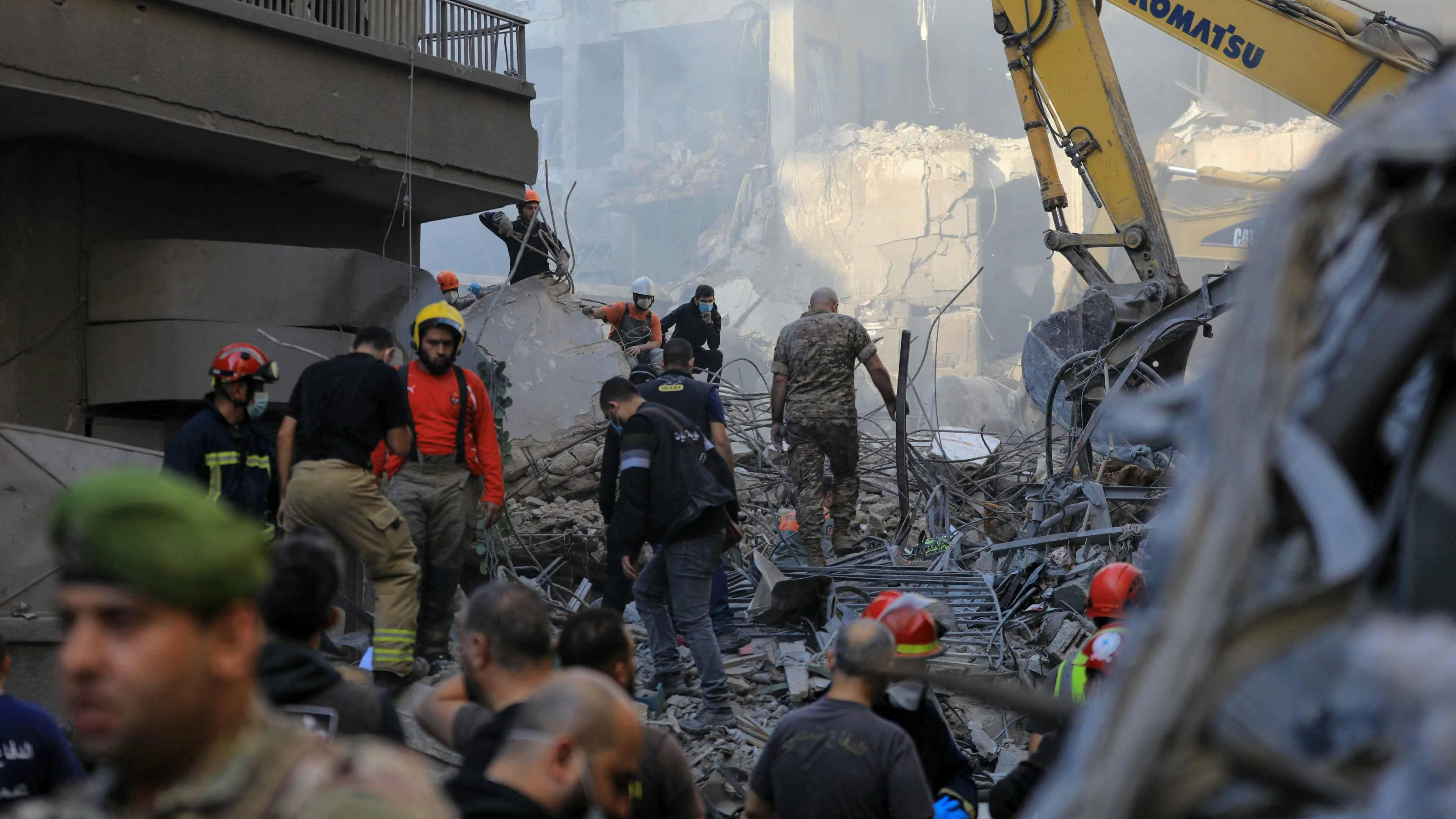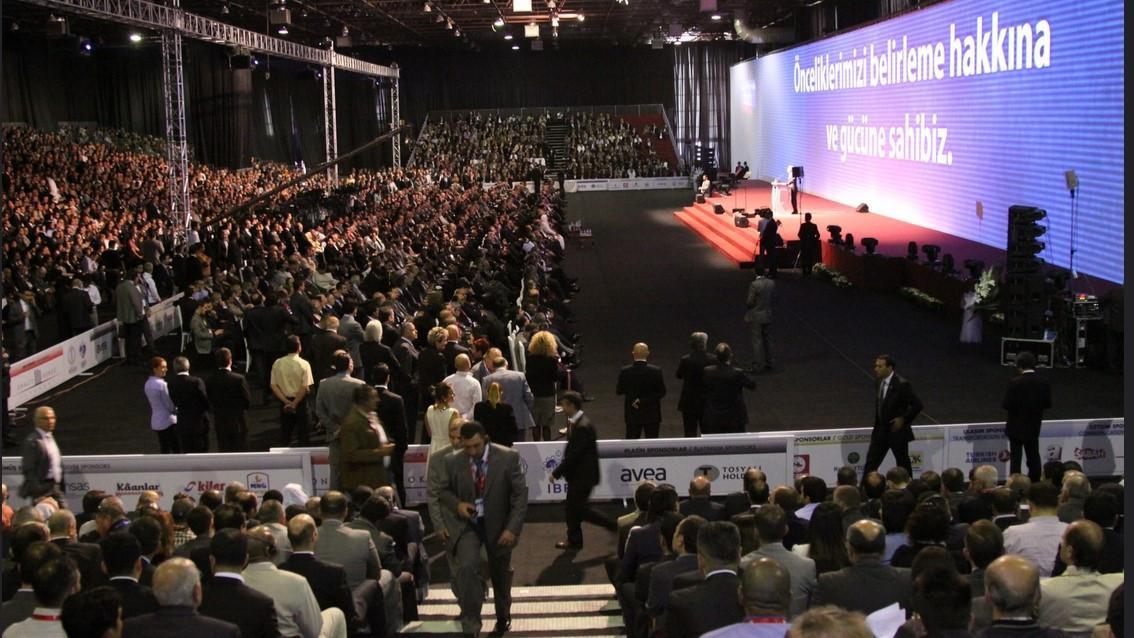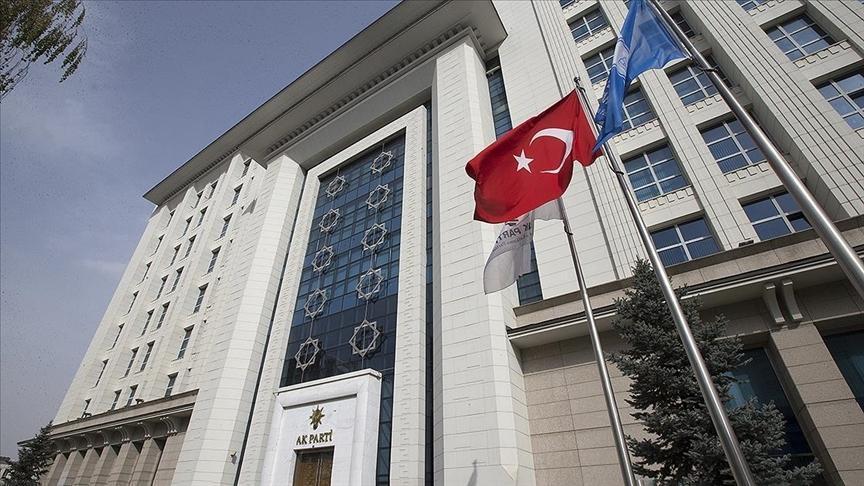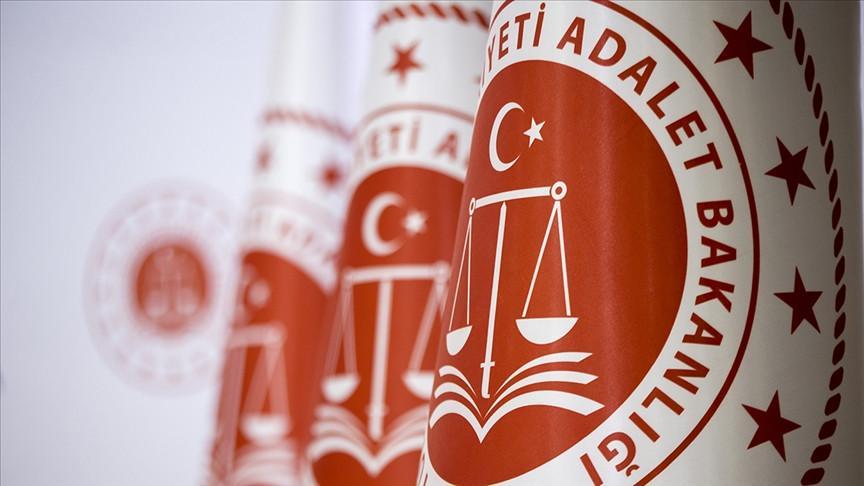Syrian opposition chief presses Russia on al-Assad
MOSCOW - Agence France-Presse
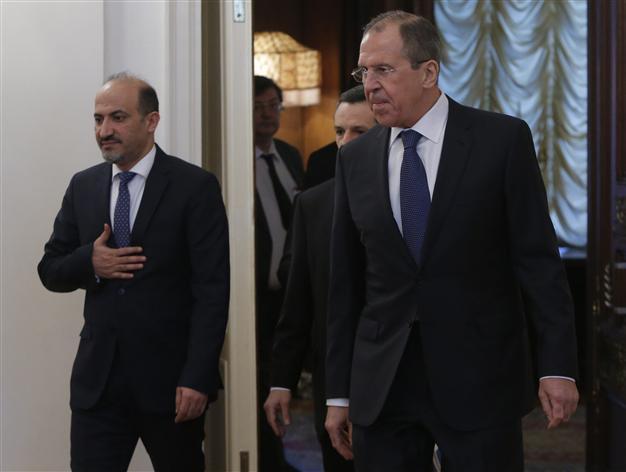
Syrian opposition leader Ahmad al-Jarba gestures as he makes a statement after the conclusion of talks on Syria, in Geneva, Jan. 31. REUTERS photo
Syria's opposition leader met Russia's top diplomat on Feb. 3 in a bid to persuade Moscow to push its ally Damascus to agree to a transitional government for the war-scarred nation.The talks between Syrian National Coalition chief Ahmad Jarba and Foreign Minister Sergei Lavrov came after an inconclusive 10-day peace conference in Geneva concluded on Jan. 31 without a commitment from Damascus to attend a new round of negotiations set for Feb. 10.
Last month's so-called Geneva II meeting was promoted jointly by Washington - a firm backer of the Syrian opposition - and Moscow in a bid to convince the warring sides to sit down for direct talks for the first time.
But Syrian President Bashar al-Assad's team and the opposition made no progress on local ceasefires or permission for humanitarian corridors to some of the country's more devastated cities such as Homs.
Russia's Deputy Foreign Minister Gennady Gatilov indicated on Feb. 4 that Moscow expected al-Assad to state firmly his delegation's intentions to resume the Geneva negotiations next week.
"We have no doubt Damascus will issue orders for the government delegation to continue the negotiations in Geneva," Russian news agencies quoted Gatilov as saying at the start of Jarba's talks with Lavrov.
An aide to Jarba said the umbrella opposition group was especially concerned that Syrian Foreign Minister Walid al-Muallem had avoided any discussion of a transitional government that could pave the way for Assad's removal from power.
"The main subjects of discussion with the Russian foreign minister will be the delivery of humanitarian assistance to Syrian cities, the release of prisoners from Syrian jails, and the formation of a transitional government," Jarba's head adviser Monzer Aqbiq told Russia's RIA Novosti news agency.
"Considering this last point, we have many questions that we will be able to discuss with Moscow," Aqbiq was quoted as saying.
"Clarify approaches'
But Lavrov gave no initial signal on Feb. 4 that Moscow intended to step up its pressure on Assad.
"I think that today's conversation will be very, very useful in helping clarify approaches that could help advance the Geneva process," Lavrov told the Syrian opposition chief.
Russia had initially invited Jarba to Moscow for a visit on the eve of the Geneva II conference late last month that would have coincided with a trip by the Syrian foreign minister.
Jarba's staff said prior commitments had prevented him from flying to Moscow at the time. The opposition chief had earlier said that Lavrov had told him that the Kremlin's position on the role of Assad was not set in stone.
But Moscow has sided with its traditional Middle East ally in public and said that Assad's departure from power should not be a precondition for political change.
Russia has also pressed for the negotiations to focus on fighting the rapid spread of Islamic extremist groups in Syria - a position promoted by al-Assad but treated with suspicion by the opposition.
"The regime wants to talk about humanitarian assistance and avoid a discussion of political issues," Syrian National Coalition secretary general Badr Jamous told the Interfax news agency.
Russia and the opposition's Western and Arab allies have clashed not only over the future role of Assad but also the makeup of the negotiating teams.
Iran formula
Lavrov has repeatedly argued that the talks should be joined by Iran - a condition rejected by the rebels because of the Islamic republic's close connections to the al-Assad regime.
But a Russian diplomatic source told Moscow's Kommersant daily that Washington has proposed a compromise that would allow Iran along with Saudi Arabia and Turkey - two ardent foes of al-Assad - to join a separate set of negotiations that would be conducted alongside the Geneva talks.
Kommersant said that U.S. Secretary of State John Kerry had forwarded the proposal to Lavrov during their talks on the sidelines of the weekend Munich Security Conference. "The Russian side, according to Kommersant sources, broadly approved this idea," the newspaper wrote.


